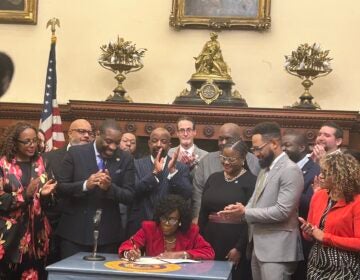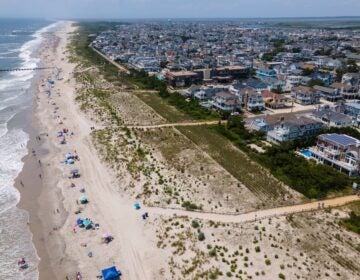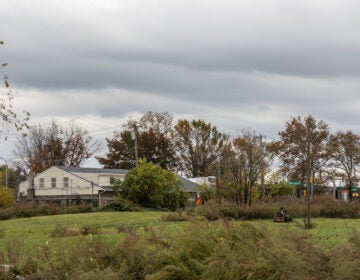Foxwoods says casino site is worthless
June 7
By Matt Blanchard
For PlanPhilly
Foxwoods Casino went before a city tax panel today to explain why their 30-acre property on the Delaware riverfront, now assessed at $45 million, may actually be worth less than $0. If that’s true, the gambling concern would be spared millions in tax payments to the city, including $2.8 million they already owe.
Foxwoods claims the site is devalued by problems of contamination, a collapsing bulkhead and the fact that only 18 of the 30 acres are so-called “fast land,” or dry land. The other 12 acres are either piers or underwater portions of the river bed. Most importantly, the casino objects to any assessment that takes future gambling revenue into account, since the city has not yet rezoned the property to allow gambling and no casino has opened on the site.
To support the claim, Foxwoods offered the reports of two appraisers, one of whom valued the future casino site at negative $900,000 in 2006.
That argument did not impress some on the Board of Revision of Taxes.
“So it’s your contention that the seller would have to give the buyer $900,000 just to take the property off his hands?” BRT vice chair Harvey M. Levin asked appraiser Eugene Pasymowski. “I’ve been doing what I do for a very long time, as an appraiser, as a board member and as an educator, and I’ve never seen a report as meaningless as this. It’s ludicrous!”
Foxwood’s tax appeal case began in February 2006, and was initially denied by the BRT the following month. The casino then appealed to Common Pleas Court, which bounced the case back to the BRT for a second hearing. Their concern is limited to tax years 2006 and 2007.
A ruling from the BRT is expected within 10 days.
Foxwoods’ Argument
A key problem for Foxwoods is the fact that they paid $65 million to acquire the property in January 2005. Why pay so much if the land is less than worthless?
To answer it, Foxwoods attorney William G. Schwartz drew a distinction between the “business value” of a property, and the taxable value of the land itself.
Future casino revenue is a business value, Schwartz said, and one that may never be realized due to anti-casino lawsuits and action by City Council. The BRT, he argued, should concern itself only with the value of the vacant land itself. Schwartz explained the $65 million purchase price as a “gamble on gambling,” made by his client, and not an accurate valuation of the land.
“There is a real possibility the [casino zoning] will never be approved for this site,” Schwartz said.
Schwartz also outlined problems on both land and water. Of the 18 acres of dry land, the dumping of ash from the city incinerator have laced the soil with PCBs, lead and other contaminants, with a remediation bill in the millions. At the water’s edge, repairs to shore up the bulkhead are estimated at $7 million. And in the river — the location that would normally boost the property’s value — Schwartz argued that pier reconstruction is too expensive to pay for itself.
“It’s actually worthless,” Schwartz said of the riverine 12 acres. “There is no way it would pay, in any way shape or form, to use that area.”
By averaging two appraisal values, one at less than $0 and a second at $9 million, Foxwoods arrived at a fair market value of $4.5 million.
Neighbors’ Retort
About 15 anti-casino residents turned out to oppose the tax break, some with stuffed skunks and a skunk puppet to convey their idea that the Foxwoods tax appeal “stinks.” Their leader was reporter-activist Ed Goppelt, the publisher of Hallwatch.org, who has pushed this story since April.
Allowed 10 minutes to challenge Foxwoods, Goppelt offered up a May 21 letter from Foxwoods to the City Solicitor’s office in which the casino apparently argues that they do have a right to build a casino under the property’s current commercial zoning. Goppelt seemed to be implying that if Foxwoods believes it can operate a casino with the current zoning, they cannot claim that non-casino zoning should reduce the property’s assessed value.
Afterwards, Goppelt said he was satisfied by the BRT handling so far: “They were asking tough questions. They were taking seriously their duty to accurately value the property of the city.”
WHYY is your source for fact-based, in-depth journalism and information. As a nonprofit organization, we rely on financial support from readers like you. Please give today.






